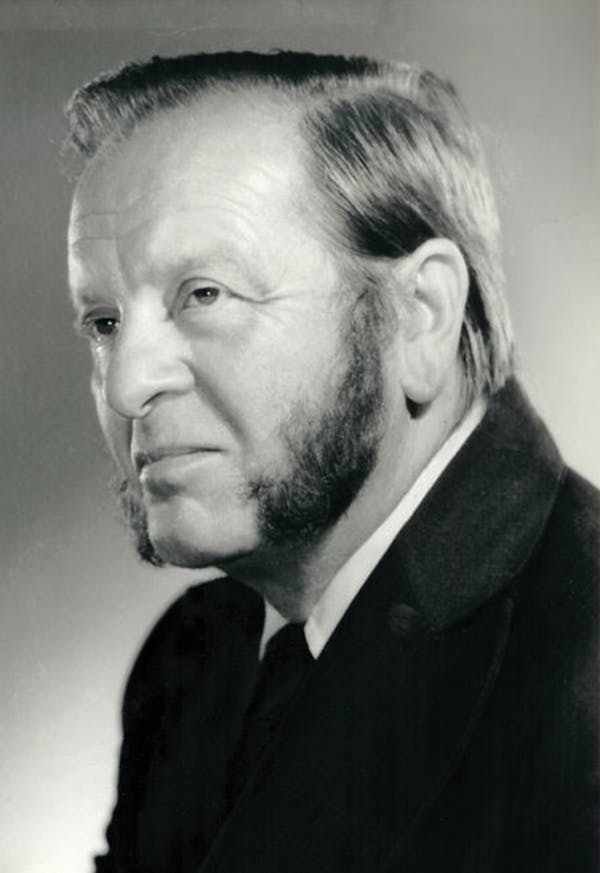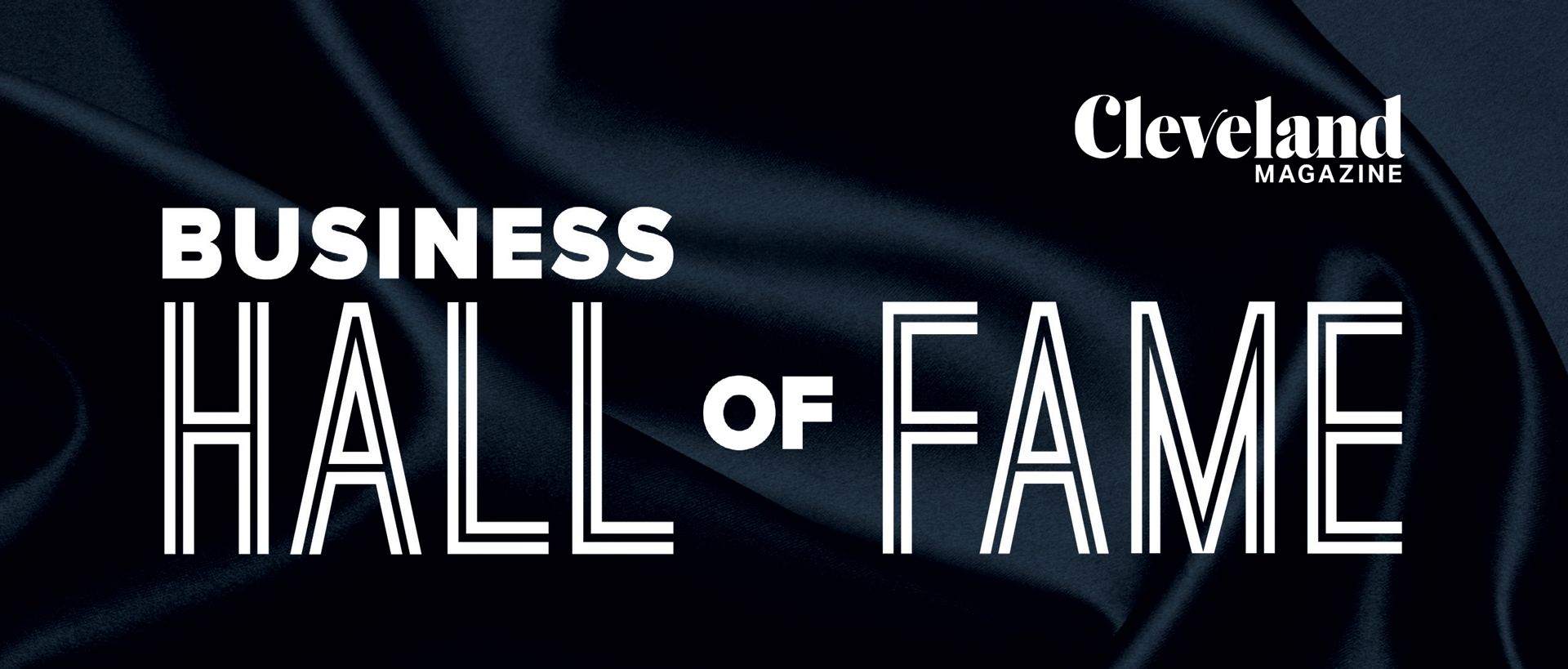
Bares, Jack
2013 - Milbar Corp.
With a love of machinery and a fix-it mentality, entrepreneur Jack Bares launched or invested in nearly 40 companies while supporting small businesses as one of the first members of the Council of Smaller Enterprises.
Jack Bares was always a tinkerer.
As a child working in a West Side bakery managed by his father, young Bares took it upon himself to fiddle with and fix a troublesome bread-wrapping machine.
“Soon enough,” recalls his brother, Jim Bares, “he became an expert on the machine. I think it showed him challenges of mechanics he hadn’t thought of — it kindled his interest in mechanics and engineering that followed him his whole life.”
By the time 91-year-old Jack Bares died in January 2012, the serial entrepreneur had founded Chagrin Falls-based Milbar Corp. and launched or invested in nearly 40 other businesses.
Along the way, his penchant for small businesses and entrepreneurship led him to become one of the first members of the Council of Smaller Enterprises.
“He had the Midas touch,” Jim says. “He had the ability to sort out whether a business would mean something good or bad for the future.”
Jack Bares began his mechanical career as an officer in the U.S. Navy during World War II. He was stationed in Washington, D.C., in charge of inventory and Navy machinery.
When he returned to Cleveland, his father had moved on from the bakery, and Bares took over the family car radiator business.
After a few years, he started looking for more, so he purchased an almost bankrupt diesel engine repair shop and made it into a healthy company.
Bares eventually sold the business to his partner and used the profits to start Milbar Corp. The modest tool company was born of an inventor’s single product patent: the Reetchet wrench, the only automotive tool that could reach the eighth spark plug in the newest General Motors model cars.
Bares purchased the patent from its inventor and soon, nearly every service station and dealership ordered the one-of-a-kind tool, says Lori Northrop, Bares’ only daughter of his four children, all of whom are now entrepreneurs in their own right.
A quiet determination characterized Bares’ business strategy, Northrop says.
“You’d come back a year later, and everyone else would have forgotten about [an idea],” she says. “But he would have accomplished it through his quiet, endless
perseverance.”
Northrop remembers many Milbar Corp. board meetings, in which Bares would sit in silence, to the point where other participants would wonder if he was listening. Then, he’d suddenly speak up with a brilliant idea.
“He made everything look very smooth,” Northrop says. “After the fact, we learned about certain business challenges he faced from my mother, but he always made every decision look planned as we were going through it. He was a real thinker, and he never got frazzled by anything. Never.”
Milbar grew to acquire new tool technologies. Pliers and wire twisters were revolutionary in the ’70s, and the corporation sold both, earning a profitable federal contract supplying wire twisters to the military in 1973.
In an effort to pool the power of Cleveland’s small businesses to snag health insurance at lower rates and sway business decisions in the city, Bares joined COSE as one of its first members.
But to Bares, the organization was always about something more — he envisioned COSE as a community outreach organization and tool for education.
To support his vision, Bares created COSE’s strategic planning course in 1979 to provide entrepreneurs with skills they need to run a small business. Bares taught courses in the program until near the end of his life.
“Jack’s coaching ability was remarkable,” says COSE president and executive director Steve Millard. “He was all about building relationships and spending time with people. Technology and computers were just coming into vogue at the end of his career, but he wanted to be in front of people, asking them questions about why they did what they did.”
Outside of the office, Bares’ passion was education. He was constantly learning about new methods of manufacturing. He graduated with a bachelor’s degree in engineering from Cleveland State University, but never got an advanced degree.
“He took all of the subjects he would have needed for [another] degree, just by constantly studying,” says his wife, Alice.
Bares’ family, in particular, benefited from his mentorship abilities.
Northrop recalls him advising her: “If you’re doing something important that you don’t do all the time, hire an expert.”
She took that advice in the late 1970s, when she was unsuccessfully running a horse stable. Desirous of a career change, she asked her father for help. He put her in touch with an inventor with a tool-line patent to sell. Years later, she opened Stride Tool, continuing her family’s legacy in the tool business.
Bares eventually offered Milbar Corp. to his children, but Northrop turned him down, at first.
“My dad had a well thought-out and strict criteria that any family member would have to meet in order to buy one of his companies,” Northrop explains. “You had to have worked in the industry for at least two years. And you had to raise all the funding from outside sources — the family couldn’t hold any paper for the business purchase.”
She changed her mind and purchased the company in 1995. Her father stayed on the board of Milbar Corp., now named Stride Tool, for the rest of his life.
Bares, who liked to fish, listen to classical music (especially the Cleveland Orchestra) and spend time with his family at their country estate in Ellicottville, N.Y., stayed active until the end of his life.
He also remained an entrepreneur in residence at COSE, and launched and ran a number of nonprofit agencies, including the Reading Circle Foundation to promote reading among children; the Bares Foundation to fund higher education, research and the performing arts; and Tool Circle to provide tools to trade schools in developing countries.
“His legacy,” Northrop says, “is the many, many businesses that his family and friends have succeeded in [because of] his support or his counseling.”
BARES' CAREER TIMELINE
1920: Jack Bares is born.
1938: Bares graduates from high school in Cleveland Heights.
1945: He is released from the U.S. Navy and returns to Cleveland to take over his father’s car radiator business.
Early 1950s: He purchases Interstate Diesel, which rebuilt diesel injectors used on trucks and diesel engines when it was almost bankrupt. He sells his shares to his business partner.
Early 1950s: Bares buys the patent for the Reetchet Tool. It wasn’t very useful until GM released the Chevrolet Monza in the early 1960s and it was the only tool that could reach the eighth spark plug.
Mid-1950s: Milbar Corp. is officially founded around its first product, the Reetchet.
1956: He marries Alice Werder, also an entrepreneur. She owned a textile company.
1956: During their honeymoon in Italy, Bares arranges a meeting with the president of Fiat and strikes a deal to sell him Milbar products.
Early 1960s: He buys PenMacNye, which had two products — one that filled milk cartons and the other that threaded surgical needles. The needle business was very successful for a time, with Johnson & Johnson a large customer.
Early 1960s: He buys Charbase, which created grill products including Balls-O-Fire, charcoal that was supposed to light with one match.
1972: In July, a small group, including Bill Jones, Margaret Kahliff, Bob Rose, Dick Lezius, Jack Findeisen, Bob Schultz and George Bodwell, creates the Council of Smaller Enterprises. Jones is named its first chairman.
1972: Milbar Corp. is one of COSE’s first members.
1976: He is given the Good Neighbor Award by Gerald Ford for his community work. Among Bares’ efforts was a not-for-profit called New Generation, dedicated to parent education.
1995: He sells Milbar Corp. to his daughter, Lori.
2012: Bares dies at his home in Ellicottville, N.Y., at age 91.
Written by Sarah Filus

)